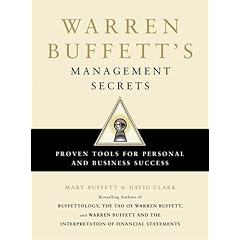
My past years' predictions and trends haven't been too bad, so yet again, I dare sally forth in violation of the old saw: He who lives by the crystal ball eats broken glass. I believe these trends will offer significant career opportunities.
The Year of the War on Obesity and Smoking. Pressures to control health care costs and the public's fears of an overwhelmed health care system will result in opportunities in for experts in developing and implementing weight-loss and smoking-cessation programs.
The Year of the E-Commerce Explosion. Despite the slow economy, holiday spending was up 3% in 2009 with e-commerce showing gains and bricks-and-mortar showing losses. 2010 will see ever more spending online. Jobs should be especially plentiful at amazon.com and at shipping companies such as FedEx and UPS.
If you run a small business, focus on e-commerce: using search-engine-optimized sites, and marketing via new media: LinkedIn, Facebook, and Twitter. We may still be a year away from GPS- and bar-code-enabled iPhones linked to price-search engines (what I call
SmartPhone shopping,) but smart e-businesses will ensure that their websites will be SmartPhone shopping-friendly.
The Year of Repair. As the economy continues to sputter or decline, more individuals and businesses will opt to repair rather than replace. A business idea: Buy a successful small commercial/industrial equipment repair business from a retiring boomer.
The Year of the SmartPhoneApp Shakeout. As the number of SmartPhone (iPhone, Blackberry, Nexus One, Pre, etc) users skyrockets, application developers can afford to spend big on developing new apps. As a result, the first-generation, crude apps will quickly become obsolete. Just as video game development moved from the garage to a multimillion-dollar effort, the same will quickly occur with SmartPhone apps.
The Year of NewMedia Marketing. TV, newspaper, and print magazine advertising as well as static web ads are dying. The burgeoning replacement: new media marketing that integrates YouTube, Facebook, LinkedIn, Twitter, blogging, and websites. Marketers with expertise in creating effective NewMedia strategies will flourish.
The Year of Collections. As government laws and policies place ever greater burdens on business (e.g., health care, family leave, workers comp,) companies are ever more desperate to collect from its customers. So jobs should be plentiful in in-house and outsourced collection services.
Government has overspent itself into crushing debt. But it seems unable to cut its spending so it is, instead, doing ever more to extract yet more money from the citizenry. Take, for example, drivers. We are subject to ever increasing tolls at bridges, tunnels, and roads. The average American pays 48 cents per gallon in gasoline tax. Municipalities are replacing parking meters with kiosks that issue receipts so you'll never again be able to pull into a meter with time left on it. Cameras at traffic lights are proliferating, with $300-$500 fines for red light runners. Even a stop sign violation, where I live, costs $250. (Alas, I learned that from first-hand experience.) Jobs should be plentiful for government employees and contractors involved in "revenue enhancement."
The Year (or two) of Immigrant Legalization (or amnesty, depending on your politics.) President Obama has promised that after ObamaCare is passed, one of his major priorities for 2010 or perhaps 2011 will be legalizing the 12 to 20 million illegal immigrants in the U.S. This will create many jobs: legalization bureaucrats, and in the health care, education, social welfare, and criminal justice systems.
The Year of the Cafe. Persistent high un- and underemployment will leave millions of Americans with spare time but little spare money. They will frequent cafes as a low-cost social and business activity. More small e-businesses will use cafes as their wifi-enabled office and meeting room. Under-the-radar job opportunity: supplier to cafes--for example, pastries, coffee, espresso machine servicing, janitorial services.
The Year of Muslim Extremism .Think of the high percentage of headlines that report on Muslim extremism: Iran's nuclear threat, the wars in Afghanistan and Iraq, Al Qaeda (for example, Umar Farouk Abdulmutallab,) Pakistan's nuclear threat, Nidal Hasan's shooting up Ft. Hood, Hamas, Hezbollah. The need will continue to grow for experts on Muslim extremists: language, culture, bioterrorism, suitcase nukes, etc.
The Year of Videoconferencing. Companies will ever more often replace travel with videoconferencing. Why? Videoconferencing technology is becoming better and cheaper (e.g., Skype, WebEx), businesses are looking for ways to save money in our slow economy, and travel will become ever more of a hassle as government tightens airport security yet more.
The Year of the Smart Grid. Solar was the big alternative-energy play in 2009 but it's ever clearer that the underlying physics will render solar a mere bit player in the energy solution. In 2010, attention will be diverted to the so-called smart grid: superconductive transmission lines controlled by monitors to distribute energy when it's most time- and cost-effective. Governments and utilities will have spent $200 billion on smart-grid technologies from 2008 through 2015, according to a report by Pike Research, 84 % of which will go to automating the nation's grid, 14% on smart meters, and 2% for electric vehicles. Nuclear energy will eventually become key, but too many in the Obama administration are anti-nuclear.
 If something's excellent, there's nothing to fix. So I tend to look for problems.
If something's excellent, there's nothing to fix. So I tend to look for problems. 








